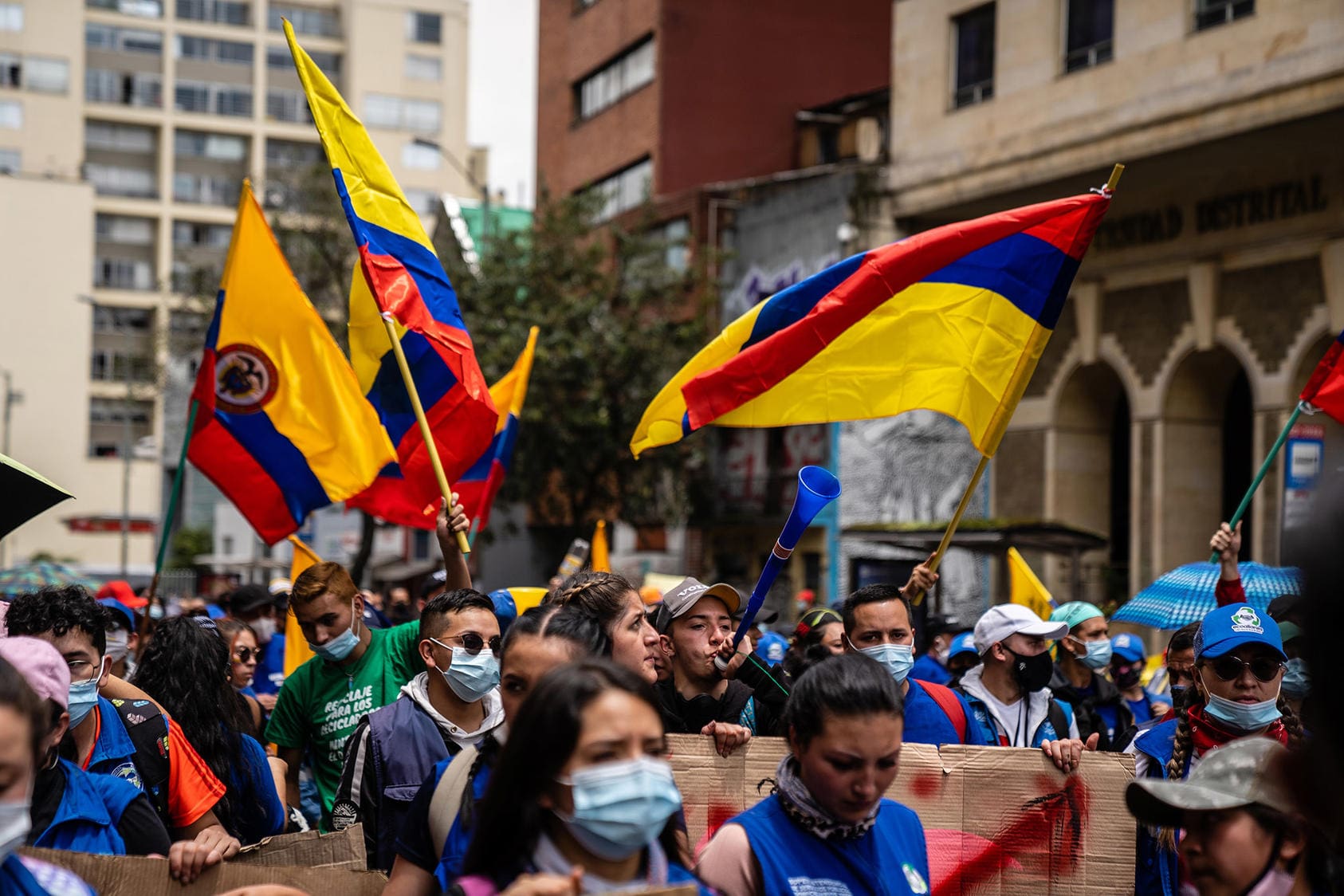Author: Emmanuel Vargas Penagos*
On the 4th and 5th of May 2021, amid massive national anti-government protests, Internet connectivity was lost in parts of Cali, Colombia. Why did the internet go down in Cali? This city, one of the largest in the country, was one of the epicentres of the demonstrations. It was never clear who caused this outage or the reasons for it. More than two years later, the Colombian Constitutional Court ordered the government to thoroughly investigate what happened.
The disruption occurred during one of the most violent episodes of government response to protests. NGOs across the country were struggling to monitor cases and to assist people injured or detained. At the same time, the Foundation for Press Freedom (FLIP) received reports from journalists who lost Internet connection when approaching armoured police vehicles during their coverage of protests. Some of these journalists claimed that this was due to the possible use of signal inhibitors by the Police.
When people at Cali lost their Internet connection, the feeling that they had been censored was expectable. However, claiming that the government ordered this disruption was inaccurate as there was no clear information or evidence on this.
Amidst the uncertainty, we at El Veinte, along with Fundación para la Libertad de Prensa (FLIP), Fundación Karisma and ISUR, filed a tutela to secure an order for the government to inform on what happened. We thought that the lack of clarity on the facts was not an argument to fully discharge the authorities. The president had ordered the army to assist the police in controlling public order in Cali, which meant that there was a high presence of public forces in that city, triggering obligations to safeguard Internet access and to proactively inform on how they acted to fulfil that duty. We also found government documents showing that the armed forces have signal inhibitors, but there was no clarity on when or how these were used.
The case went on for more than two years. Both the first and the second instance judges rejected our claims saying that there was no evidence of a government action to disrupt Internet connection. The judges, as well as the government, replicated reports by Internet providers saying that the issue was due to vandalism. The case was later attracted by the Constitutional Court, which handed down a final judgment in September 2023. In parallel to this judicial process, the Inter American Commission had conducted a visit to Colombia in relation to the protests and issued a report calling the government to provide thorough information on what happened. The UN Special Rapporteurs on freedom of peaceful assembly and of association and on freedom of expression and opinion had also asked for more information on what had happened. The answer never came.
The judgment by the Constitutional Court had a completely different approach than what the other courts had done. Although the Court agreed that there was no clear evidence on government interference and there were several factors that could have caused the disruption on Internet connection, the lack of information and transparency was enough to consider that the authorities had violated freedom of expression and peaceful assembly. They had a duty to fully investigate the facts and to inform promptly and transparently on what had happened. Moreover, if the government had used signal inhibitors, they had to determine if such use had a legal basis and if it was necessary and proportionate in relation to the potential impact to freedom of expression and the rights to peaceful assembly.
The Court also considered that given the difficulties for citizens to determine what happened, the government has a duty of “maximizing” its transparency. Based on this, the Court ordered the government to prepare a thorough report on what happened, on the number of signal inhibitors they have, their reach, and whether they were used in Cali. The Court also ordered the government to review its regulation on the use of these devices to determine if they provide sufficient safeguards against abusive uses for censorship and to reform them if it doesn’t.
Internet shutdowns are rare in Latin America. In fact, this is the first judgment by a Court on this issue in the region. Some cases have emerged in Nicaragua amidst protests, and Venezuela is constantly facing outages due to poor infrastructure. What this judgment shows, however, is that governments must safeguard Internet connectivity, especially in distressing contexts like massive protests.
* Emmanuel is codirector at El Veinte and worked in Media Defence from 2019 to 2022.
Read more about the connection between protecting connectivity and safeguarding human rights in our summary module on digital rights.
Recent Case Studies
Why did Internet go down in Cali, Colombia during the 2021 protests?
The precarious state of press freedom in Turkey, entwined with a deteriorating democratic environment, poses significant challenges to journalists. Increasingly they face arbitrary arrests, legal threats, and increasing violence in their pursuit of reporting truth. In response to these threats, the Media and Law Studies Association (MLSA), our partner, actively defends press freedom and human […]
Why did Internet go down in Cali, Colombia during the 2021 protests?
23 October 2023 marks one year since the killing of prominent Pakistani journalist and news anchor for Pakistani broadcaster, ARY News, Arshad Sharif. Sharif was fatally shot at close range by Kenyan Police at a roadblock near Nairobi. To this day, a transparent, independent and effective investigation into the circumstances of his death has not […]
Why did Internet go down in Cali, Colombia during the 2021 protests?
November 2nd marks the International Day to End Impunity for Crimes Against Journalists. The threats and dangers that constitute a stark reality for many journalists reinforce the importance of this day. Every year journalists are killed, tortured, and harassed for carrying out their work. Over 1,600 journalists have been killed since 2003 with a sharp […]



